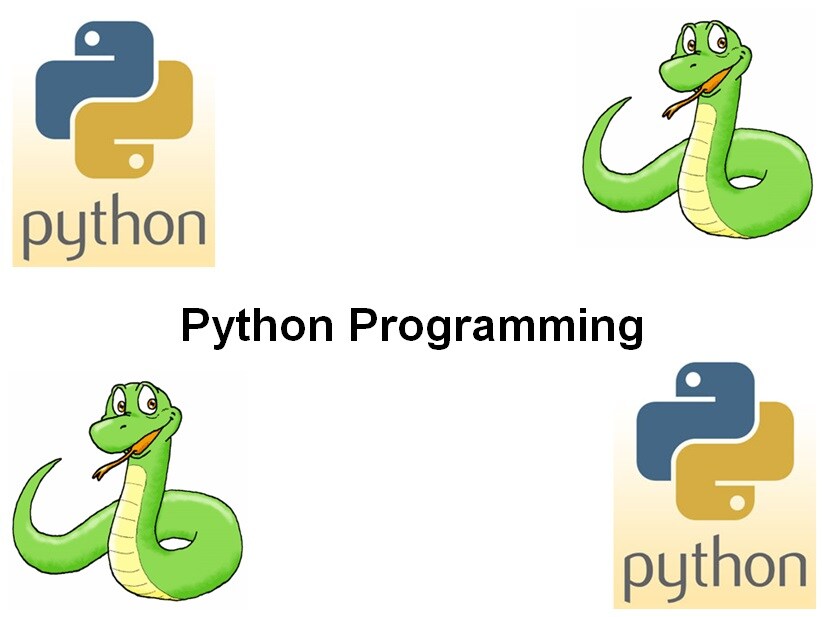-
Learning by doing
-
Trainers with practical experience
-
Classroom training
-
Detailed course material
-
Clear content description
-
Tailormade content possible
-
Training that proceeds
-
Small groups
In the course Python Programming participants learn how to program in the object-oriented scripting language Python. Python is a language that is often used for data analysis, installation scripts and prototypes of large applications.
After an introduction on the installation and the different ways to execute scripts, the basic concepts such as declarations, variables and control flow structures are discussed.
Attention is also paid to collection structures, such as Lists, Tuples and Dictionaries. Next the focus is on the use of functions with the different methods of parameter passing, such as by value and by reference. The scope of variables and lambda functions are also discussed here.
Subsequently attention is paid to the division of Python software into modules and the use of namespaces and packages. Comprehensions in Python and functional programming are discussed as well as the handling of errors in scripts using exception handling.
Next the functionality of various Python library functions for accessing files is the subject matter and attention is paid to database access with the Python Database API.
Also object-oriented programming with classes and objects is treated. In this respect concepts such as properties, constructors and encapsulation are highlighted.
Finally if time allows, optional attention is paid to different libraries for Regular Expressions, unit testing and date and time. A follow up on this course is the course Advanced Python Programming .
The Course Python Programming is intended for Developers and system administrators who want to learn how to program in Python and other persons who want to understand Python code.
Knowledge and experience with programming is not strictly required to participate in this course. Experience in programming is however is beneficial for a proper understanding.
The theory is treated on the basis of presentation slides. Illustrative demos are used to clarify the concepts further. The theory is interspersed with practical exercises. The course material is in English.
Participants receive an official certificate Python Programming after successful completion of the course.

Module 1 : Python Intro |
Module 2 : Variables and Types |
Module 3 : Data Structures |
| What is Python? Python Features Getting Started Setting up PATH Environment Variables Running Python Interactive Mode Script Mode Identifiers Reserved Words Lines and Indentation Multi Line Statements Quotes |
Variables Data Types Python Numbers Numerical Types Number Type Conversions Conversion Functions Built-in Number Functions Python Strings String Operations String Formatting Triple Quotes Raw and Unicode Strings Built-in String Functions |
Sequences and Lists Accessing and Updating Lists Multidimensional Lists List Operations List Functions and Methods Tuples Accessing Values in Tuples Tuple Functions Bytes and Byte Arrays Sets and Dictionaries Accessing Values in Dictionaries Properties of Dictionary Keys Dictionary Methods |
Module 4 : Control Flow |
Module 5 : Functions |
Module 6 : Modules |
| Control Flow Constructs if Statement else Statement elif Statement while Loop for Loop break Statement continue Statement Loop with else Combination pass Statement Python Operators Operator Precedence |
Function Syntax Calling Functions Pass by Value Pass by Reference Overwriting References Function Arguments Keyword Arguments Default Arguments Variable Length Arguments Lambda Functions return Statement Scope of Variables |
import Statement from…import Statement Locating Modules Creating and Using Modules dir Function Python Packages Explict Import Modules Implicit Import Modules Namespaces and Scoping globals and locals Functions reload Function Test Harnass |
Module 7 : Comprehensions |
Module 8 : Exceptions |
Module 9 : Python IO |
| Functional Programming Map and Filter Reduce and Lambda List Comprehensions Filtered List Comprehension Syntactic Sugar Dictionary Construction with Zip Dictionary Comprehension Dictionary from Keys Set Comprehension |
Unexpected Errors Typed Exception Handling Exception Handling with Else except Clause Multiple Exceptions Standard Exceptions try-finally Clause Exception Arguments Raising Exceptions Example raising Exceptions User Defined Exceptions |
Input and Output IO Module Opening Files File Open Modes Reading and Writing Binary Files Reading and Writing Text Files File Positions Renaming and Deleting Files Directory Methods Creating Directories |
Module 10 : Database Access |
Module 11 : Python Classes |
Module 12 : Python Libraries |
| Python DB API Using with Inserting Data Prepared Statements Last inserted row id Retrieving Data Fetching Rows Parameterized Queries Transactions |
Object Orientation Creating Classes Class Members Creating and Using Objects Accessing Attributes Property Syntax Built-in Class Attributes Constructors and Destructors Encapsulation |
Regular Expressions match Function Matching versus Searching Search and Replace Unit Testing Unit Test Example Date and Time Handling Time Tuple Calendar Functions |
